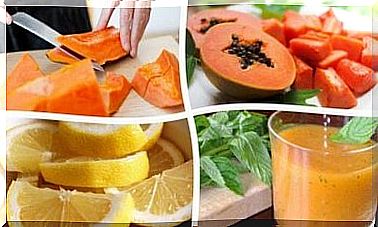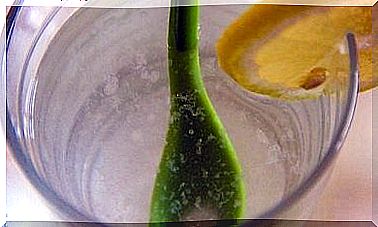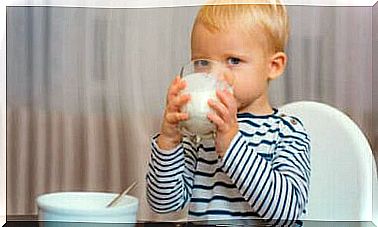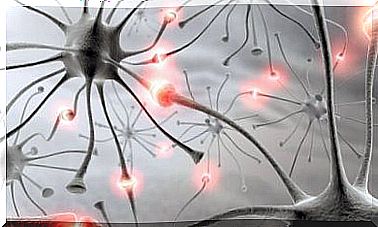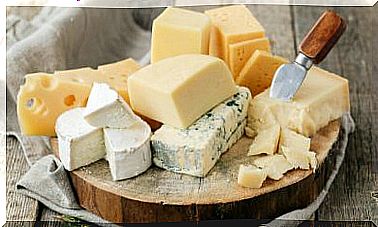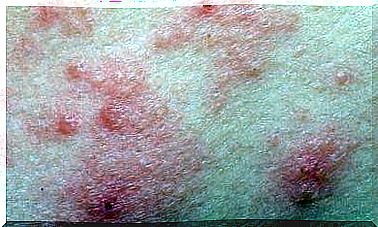Botulism: Honey Is Dangerous For Babies
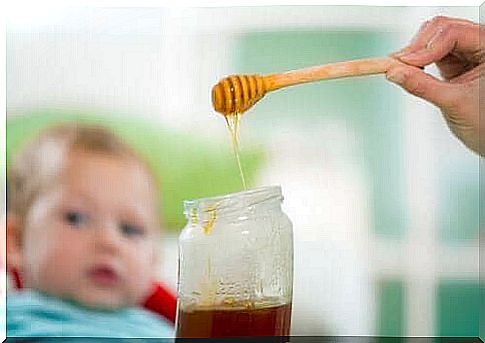
Do you know why honey and babies are a bad combination? Do you know what botulism is? After all, is honey, with its unmistakably sweet taste, then not one of the healthiest and most nutritious types of food in the world? Didn’t our parents and grandparents wet our pacifier with a little honey to make us happy?
All of this may be true enough. However, scientific studies have found that this is a dangerous practice. Doctors now advise never to give honey to babies under twelve months under any circumstances.
Botulism: The reason why babies are not allowed to get honey
Humans have been eating honey for thousands of years. It is a natural and nutritious food and its benefits are innumerable and well known. From ancient Egypt to the present day, honey has always been an ingredient needed in all sorts of recipes. This is because of its many properties and sweet taste.
Unfortunately for babies, however, this natural product also contains Clostridium botulinum , a motile bacterium that releases a neurotoxin that can be very dangerous for babies under one year.
The reason is simple: A baby’s gut microbes have not yet matured, and spores of this bacterium can easily spread in their gut. Then they continue to release botulinum toxins, which are currently considered some of the most deadly drugs we know.
This is what we refer to as infant botulism, a type of botulism that mainly affects children under twelve months and can be fatal. However, it does not affect them in the same way after their first year. This is because their natural defenses are developed and then are able to prevent the spread of bacteria.
Honey, babies and botulism
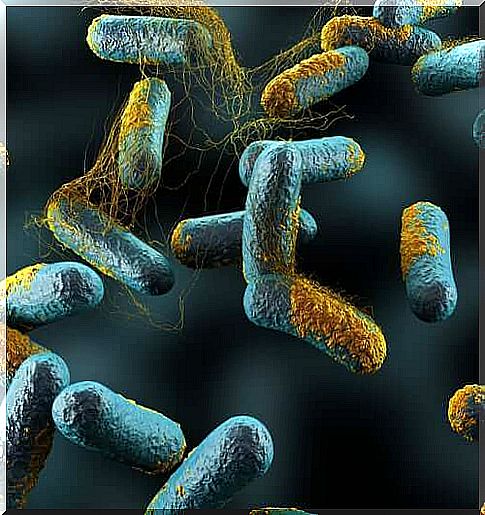
Clostridium botulinum is a bacterium that is naturally found in dirt. Therefore, it can be present in virtually all types of foods, both of plant and animal origin. This bacterium organizes itself in spores and can remain dormant until it finds the ideal conditions to multiply and grow.
It can be especially in homemade preserves, as it prefers environments with a low oxygen content. However, it generally does not tolerate acid. Nor can it thrive in solutions with high concentrations of sugar. It is for this reason that it usually remains dormant in honey, waiting for the ideal conditions to be present.
When a baby under twelve months eats honey, the sugar in this nectar is diluted in the stomach. This is because it is still a low acid environment with little oxygen. Therefore, the bacterium here finds the ideal conditions to begin its spread and growth in this type of environment and release its botulinum toxins.
They then reach the neuromuscular terminals through the bloodstream and can lead to infant botulism. This is a very dangerous condition that requires immediate hospitalization.
Symptoms
Botulism in children affects the nervous system, so it can present as a wide range of symptoms. Usually they occur approx. 12 to 48 hours after coming into contact with the bacteria.
The most common are:
- Slow breathing or difficulty breathing
- Constipation
- General weakness
- Weak crying
- Drowsiness
- Reduced reflective arc
- Double or blurred vision
- Dry mouth
- Relax eyelids
- General lethargy
- Eating too slowly
- In extreme cases: Paralysis of their arms, legs or respiratory system.
Diagnosis and treatment

A pediatrician will take into account the description of the symptoms provided by the parents to determine if the child may have botulism. They are likely to perform a stool analysis to check for the presence of botulinum toxins.
Likewise, it is important to emphasize that infant botulism requires immediate hospitalization. Studies have shown that it affects the nervous system and can lead to respiratory failure. For this reason, it is necessary to hospitalize the baby and keep them under constant observation.
Treatment success depends on early diagnosis and timely administration of the botulinum antitoxin. In the most severe cases, a child may even require artificial respiration or intravenous nutrition.
Is honey the only food that causes botulism in infants?
Honey is not the only food that can lead to infant botulism. As we mentioned above, bacteria responsible for this condition are found to a large extent in nature. It is for this reason that it is quite difficult to identify the source of the spores. Of course, honey is not the only carrier.
In fact, botulism bacteria live in dirt and spread around through dust that is in the air. So a baby could easily get them in through the breathing. Therefore, doctors do not recommend exposing the little ones to environments where there is too much dust. It is also a good idea to keep them away from any place where people move around in dirt.
Due to the severity of botulism and the difficulty in eliminating this bacterium, you need to be aware of any outbreaks of this bacterium near you to avoid contagion and even possible epidemics. In this context, the WHO seeks to create security and promote surveillance, detection, risk assessment and disease control.
As you can see, although outbreaks of botulism are rare, they are always an emergency and a public health condition. Local authorities must establish the extent to which the outbreak is natural, unintentional or deliberate immediately. This is the only way to prevent new cases from occurring and to effectively treat those who are already ill.
Recommendations
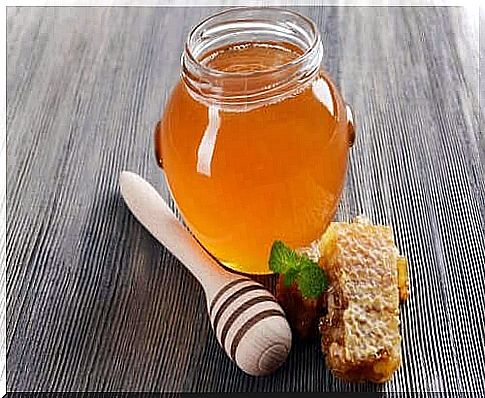
So the most important measure to avoid honey with botulism bacteria is to keep honey away from your baby until they are a year old. However, you must take into account that the disease can be caused by other infectious agents. Because there is no vaccine against this bacterium, prevention is always the best measure.
To do this, pediatricians recommend:
- Never give honey to a child under twelve months.
- This bacterium can also be present in corn syrup, so do not give this to babies either.
- Avoid exposing your baby to dust or dirt as it may be contaminated.
- Cook homemade preserves at high temperatures.
- Maintain proper hygiene.
Conclusion
Babies should not eat honey, because despite its sweetness and wonderful nutritional properties, the risk of botulism is very high in children under one year. This is because their immune system is not sufficiently developed yet. Therefore, it is defenseless against the microorganism that causes this disease.
Lastly, be aware that honey is not the only carrier of botulism. Then follow the correct hygiene instructions and recommendations from experts to keep your baby healthy and well.

